- 4 min read
Our guide to Mauritius
Considering taking the leap to start your new life in Mauritius? Here is a little guide to living in paradise...

Mauritius is more than a tropical paradise; it's a thriving island nation that offers a high quality of life, modern infrastructure, and a welcoming environment for expatriates. Whether you're looking for a fresh start, a safe place to raise a family, or a business-friendly destination, Mauritius offers an array of benefits. Boasting stunning landscapes, a multicultural community, and a blend of luxury living with authentic island charm, relocating here promises an enriching experience. Before making the move, it's essential to familiarize yourself with the logistics to ensure a smooth transition to island life.
What can I expect living in Mauritius?
Cultural diversity: Mauritius boasts a rich cultural heritage stemming from its history as a former colony of various European powers and its location at the crossroads of Africa, Asia, and the Middle East. As an expat, you'll find a diverse and inclusive society that celebrates its multiculturalism.
Thriving economy: The country's economy is driven by sectors such as tourism and financial services, making it an attractive destination for expats, particularly those in white-collar professions. Mauritius has been recognised by the World Bank as a favourable environment for business, which attracts professionals from around the globe.
Breathtaking environment: From sandy beaches to lush, picturesque landscapes, Mauritius offers a stunning natural environment. Expats can enjoy outdoor activities such as water sports, hiking, and exploring the island's unique flora and fauna.
Immersion in the culture: Embracing the local culture and customs can enhance your expat experience in Mauritius. Participating in cultural events, trying local cuisine, and learning about the island's history and traditions can enrich your stay.
- Development
- New
Can expats buy property?
Mauritius offers expats the opportunity to purchase property, but there are clear restrictions outside of designated schemes. Foreigners can buy property in:
Integrated Resort Scheme (IRS) and Real Estate Scheme (RES): Designed for high-end villas and residential complexes, often with luxury amenities like golf courses, private marinas, or beachfront access.
Property Development Scheme (PDS): Introduced to replace the IRS and RES, this scheme promotes real estate projects with community integration. A minimum investment of USD 375,000 is required, and it grants the buyer a residence permit.
Smart city scheme: These modern urban developments blend business and residential spaces and offer tax incentives to encourage investment.
Ground +2 scheme: Expats can also purchase apartments in buildings of at least two floors (excluding the ground floor), with a minimum investment of MUR 6 million (approximately USD 150,000).
It’s important to work with a licensed real estate agent and a notary to guide you through the legal aspects of property acquisition. Property in Mauritius is a safe investment, and the government encourages foreign buyers as part of its economic strategy.
What about visas?
To move to Mauritius as an expat, you’ll need to apply for the right type of visa or permit. The most common options are:
Occupation Permit (OP): Designed for professionals, investors, and self-employed individuals, the OP serves as both a work and residence permit. To qualify:
Professionals: Must have a confirmed job with a minimum monthly salary of MUR 60,000 (or MUR 30,000 for those in the ICT sector)
Investors: Must invest a minimum of USD 50,000 in a Mauritian business.
Self-employed: Individuals must show investment in their own business of at least USD 35,000
Residence Permit: Expats can obtain a Residence Permit by purchasing property under the IRS, RES, PDS, or Smart City schemes with a minimum investment of USD 375,000. This allows the buyer and their family to live in Mauritius, with permits renewable every ten years.
Retired Non-Citizen Permit: If you are over 50 years old and can transfer at least USD 1,500 monthly to a Mauritian bank account, this permit allows you to stay in Mauritius for three years, renewable thereafter.
Applications for all permits are processed by the Economic Development Board (EDB), and online applications make the process relatively smooth.
Here is a link to the EDB website where you will find all of the requirements for each visa option: https://edbmauritius.org/work-live
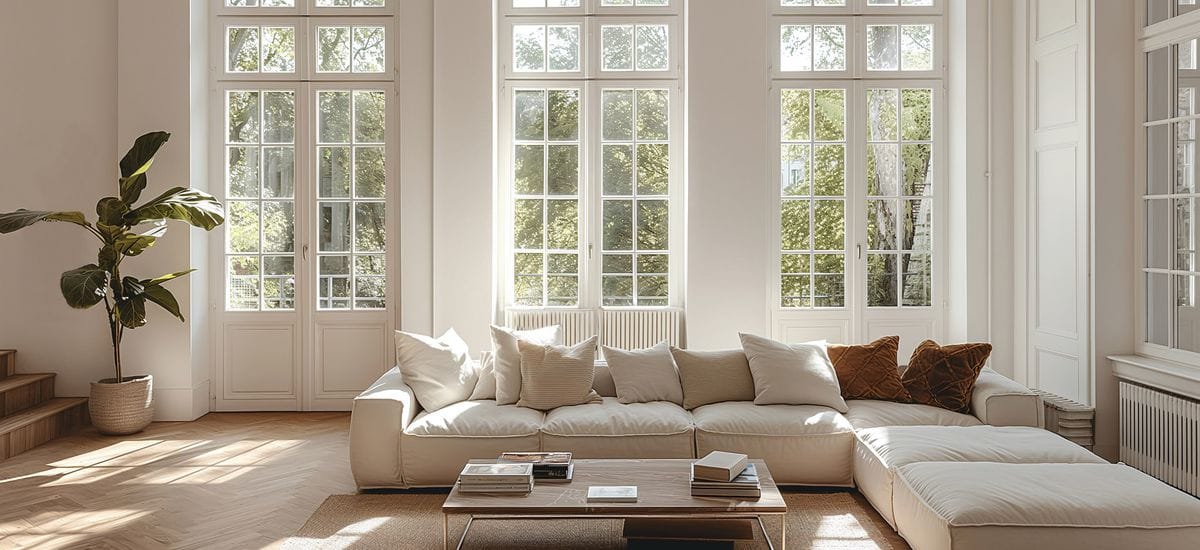
Find your dream property
Bringing pets to the island
Bringing your pet to Mauritius requires planning and adherence to the island’s strict animal import regulations, designed to protect local wildlife. Here's what you need to know:
Pet import permit: Apply for this permit well in advance through the Ministry of Agro-Industry and Food Security. The application should include medical certificates and vaccination records.
Vaccinations: Ensure your pet is up to date with vaccinations, especially rabies. Pets must be vaccinated at least 30 days before their arrival but no more than 12 months prior.
Health certificate: A veterinarian must issue a health certificate within 48 hours of departure, confirming your pet is in good health and free from diseases.
Quarantine: Depending on your pet’s country of origin, they may need to undergo a quarantine period upon arrival. For pets from low-risk countries, the quarantine period is often waived.
Pets are generally flown into Mauritius via Sir Seewoosagur Ramgoolam International Airport, where they will be inspected by a veterinary officer before entering the country. It's advisable to work with a pet relocation specialist to handle the documentation and travel arrangements.
Schooling
Mauritius offers a variety of high-quality education options for expatriate families. Choosing the right school depends on your child’s needs and language preferences.
Public schools: These are free for residents and expatriates alike. While most public schools follow the national curriculum in French and Creole, English is widely used, especially in secondary education. However, many expat families opt for private or international schools for consistency with global education standards.
Private schools: Numerous private institutions across the island offer both primary and secondary education in English and French. Popular curriculums include the British system (IGCSEs and A-levels) and the French Baccalaureate. Admission is competitive, so applying early is recommended.
International schools: Mauritius has several well-regarded international schools, including Northfields International High School and the International Preparatory School (IPS), which offer the International Baccalaureate (IB) curriculum. These schools cater to a diverse student body and provide globally recognized qualifications.
School fees vary significantly between public and private institutions, with international schools generally being more expensive.
Medical
Healthcare in Mauritius is of a high standard, especially in private facilities. Expats can access both public and private healthcare services, but most prefer private clinics due to shorter waiting times and more personalized care.
Public healthcare: Mauritius provides free public healthcare to all residents, including expatriates. However, public hospitals and clinics can be busy, and the quality of care may not be as high as in private facilities. For minor issues or emergencies, public hospitals are generally adequate, but expats often choose private care for more specialized treatments.
Private healthcare: Mauritius has several excellent private hospitals and clinics, such as Clinique Darné and Wellkin Hospital. These facilities offer modern medical technology and internationally trained doctors, many of whom speak English and French fluently. Some hospitals even offer specialist treatments such as fertility services, cardiac care, and cosmetic surgery.
Health insurance: While public healthcare is free, private healthcare comes with a cost. It’s advisable to take out a comprehensive health insurance policy that covers private consultations, hospital stays, and treatment. Many international insurers offer coverage in Mauritius.
Pharmacies: Pharmacies are well-stocked with both local and imported medicines. Many pharmacies in larger towns are open late, and some are open 24/7 in case of emergencies. However, it’s wise to bring a supply of any specific prescription medications when moving to the island, as certain brands may not be readily available.
Mauritius' healthcare system ensures that expats can enjoy peace of mind when it comes to medical care. Many hospitals and clinics maintain international standards, making it easier for expatriates to receive the care they need.
The EDB
The Economic Development Board is the leading Government agency mandated to provide strong institutional support for strategic economic planning and to promote Mauritius as an attractive investment and business centre, a competitive export platform as well as an International Financial Centre (IFC). The EDB is a corporate body set up under the Economic Development Board Act 2017 and operates under the aegis of the Ministry of Finance, Economic Planning & Development.
What they do:
act as the single interface with all investors and liaise with relevant authorities for the registration of investors
provide facilitation and advisory services to businesses in Mauritius;
identify opportunities in new economic sectors and engage with international partners to develop strategic alliances to create the appropriate ecosystem for these sectors;
improve business environment and undertake such other activities as may be necessary to promote Mauritius as an attractive base for investment and as an international financial centre;
initiate and undertake necessary economic research at the macro-economic level.
In other words, the EDB is the go-to place for all of your visa and financial queries. Check out their website here: https://edbmauritius.org/work-live
Whatever you choose to do, Engel & Völkers Mauritius are here to help your tropical living dreams come true!
You may also be interested in
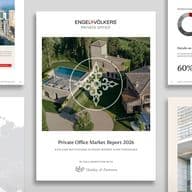 Private Office Market Report 2026
Private Office Market Report 2026- 2 min.
- 03.12.2025
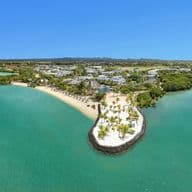 The rise of smart cities in Mauritius: A new era of sustainable living
The rise of smart cities in Mauritius: A new era of sustainable living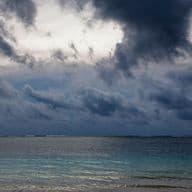 Staying safe during cyclone season in Mauritius: What you need to know
Staying safe during cyclone season in Mauritius: What you need to know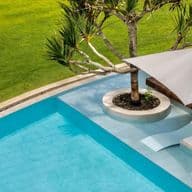 Expat life: tips for adjusting to life in Mauritius
Expat life: tips for adjusting to life in Mauritius Budget 2025–2026: Preliminary Overview & Potential Impact on Real Estate
Budget 2025–2026: Preliminary Overview & Potential Impact on Real Estate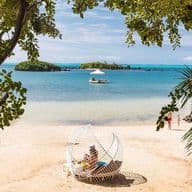 Moving to Mauritius from the UK: Tax benefits
Moving to Mauritius from the UK: Tax benefits Buyers guide for Mauritius
Buyers guide for Mauritius
FOR MORE INFORMATION
Contact us


Engel & Völkers Mauritius
Shop 2B Cinema Level, La Croisette Mall, Chemin Vingt Pieds
30527 Grand Baie, Mauritius
Tel: +2302636315